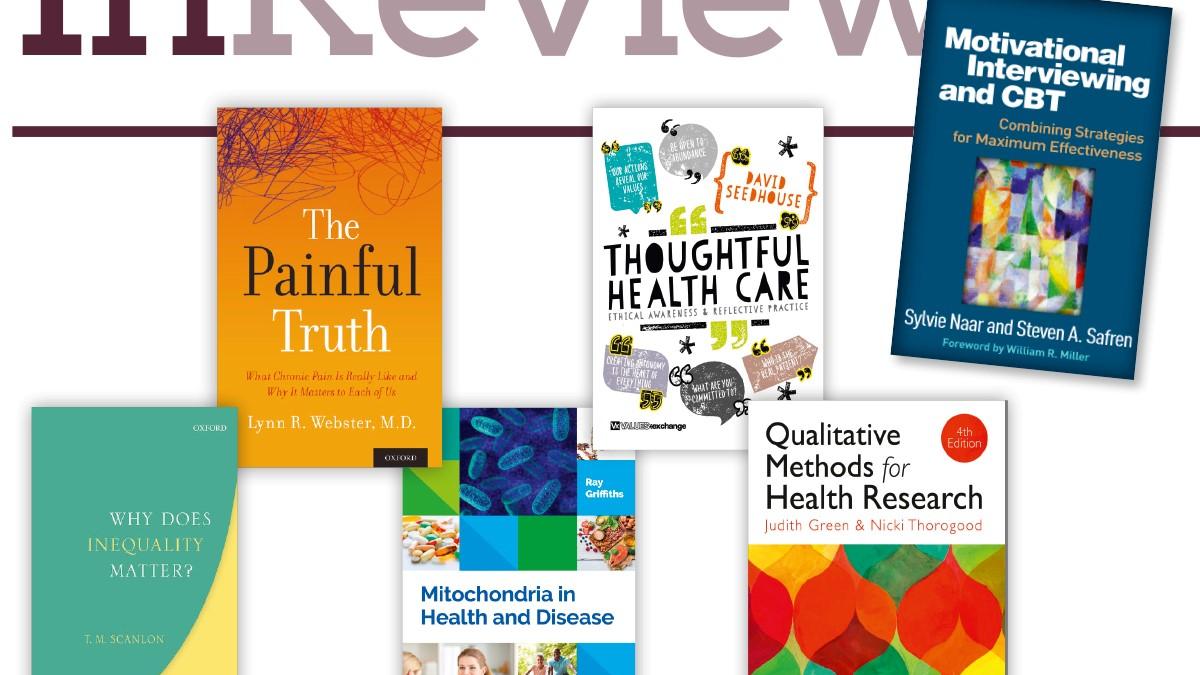Providing tools to enhance treatment of any clinical problem, this book shows how integrating motivational interviewing (MI) and cognitive-behavioural therapy (CBT) can lead to... Read more here...

Motivational interviewing and CBT: Combining Strategies for Maximum Effectiveness Sylvie Naar and Steven A Safren Guilford Press ISBN 9781462531547
This is a therapy manual written for therapists who already perhaps have a good grasp of cognitive behaviour therapy (CBT). The motivational interviewing (MI) model that the authors add to the CBT model is an attempt to draw out the valuable motivational and relationship building facets from the MI model and link them to the core concepts of CBT.
A lot of what I thought was good about this book lay in some of the tasks within the chapters. I particularly liked the worksheets that made issues more visual. It made them feel more accessible to both my thinking and the patient (particularly the focusing map, commitment scaling and change plans). I particularly liked the ‘MI spirit in the evaluation’ section that shines a light on where the therapist thinks they are in sessions (‘wrestling/working against each other vs. dancing/working in partnership vs. standing/being in the room not much happening). It really helped me to think about the working partnership. The worksheets and therapist practice sections really did augment my understanding between ‘why’ to ‘how’. Reading this text has brought an enhanced sense of collaboration between my CBT/acceptance and commitment therapy/mindfulness sessions.
I am unsure my physiotherapist colleagues would naturally be able to use this book in its fullest sense but could see that some of the inherent messages and worksheets contained within could be very useful. I often work in sessions with physios and have seen how they can get stuck with the ‘why’ (focusing upon why the patient continues to experience their symptoms) and perhaps this book could help with shifting towards the ‘how’ (that the patient can live with their symptoms and live their life well). It could offer physiotherapists some skills to move focus from a medical/’fix-it’ model to how to begin making changes towards a more meaningful life alongside health issues.
- Dr Susan Childs is a consultant clinical psychologist at Chelsea and Westminster Hospital NHS Trust
Why Does Inequality Matter? T M Scanlon Oxford University Press ISBN 9780198812692
Inequality is widely regarded as morally objectionable. T M Scanlon investigates why it matters to us. Demands for greater equality can seem puzzling. It can be unclear why people object to what others have, as opposed simply to wanting to be better off themselves.
The Painful Truth: What chronic pain is really like and why it matters to each of us Lynn R Webster Oxford University Press ISBN 9780190659721
Pain specialist Lynn Webster examines the debilitating nature of pain and offers practical answers, including the benefits and risks of opioids; and how people in pain can have fulfilling lives.
Mitochondria in Health and Disease Ray Griffiths Singing Dragon ISBN 9781848193321
As the body’s energy suppliers, mitochondria have a serious impact on our health. This guide explains the potential consequences of mitochondrial dysfunction, and how personalised nutrition can aid mitochondrial health and help with chronic disease.
Thoughtful Health Care: Ethical awareness and reflective practice David Seedhouse Sage ISBN 9781473953833
David Seedhouse explains how simplistic labelling, mindless targets and empty slogans have created a delusion of control and efficiency in health care, obscuring actual patient and carer realities.
Qualitative Methods for Health Research (4th edition) Judith Green and Nicki Thorogood Sage ISBN 9781473997110
This book explains the theory of qualitative health research and explains how to approach, start, maintain, and disseminate your own research.
Author
Frontline and various
Number of subscribers: 2




































